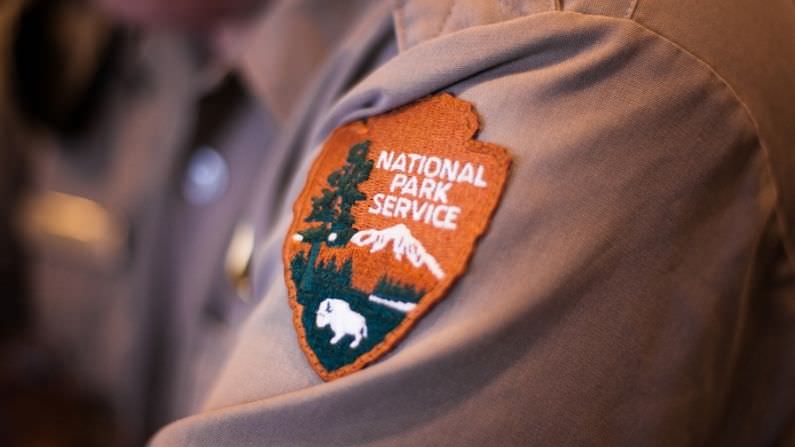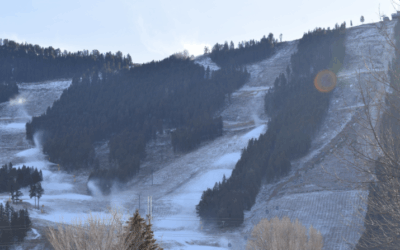A recent investigation by High Country News (HCN) found that the National Park Service buried an internal report that documented widespread harassment within the agency. The Voices Tour Report was completed in 2018 but kept quiet until a parks employee leaked a copy in early November. KHOL’s Will Walkey spoke to reporter Lyndsey Gilpin, who broke the story, to learn more about her reporting and the lack of major changes within the park service thus far.
The following transcript has been edited for brevity and clarity.
WILL WALKEY/KHOL: Lyndsey Gilpin, thank you so much for joining KHOL and for talking with us about this issue.
LYNDSEY GILPIN: Yeah. Thank you for having me.
KHOL: Would you start by first introducing how you became involved with this story back when you were working with High Country News, five years ago now?
GILPIN: So, I became aware of the story when that Office of Inspector General report came out and it was on—specifically on—gender discrimination and harassment in the Grand Canyon [National Park]. And when that report came out and showed that there was some widespread issues with harassment in the Grand Canyon specifically, we just assumed that, if it was happening in the Grand Canyon, that was happening in other parks around the country. So, we put up a tip form on HCN’s website and asked employees to confidentially contact us and let us know if they had a story of their own. And [that] just really flooded [us] with stories from decades ago [and] things that were happening currently to employees. That really kind of started us on this path of covering this issue in general and the systemic problems within the National Park Service that were causing these things and allowing them to happen.
KHOL: Is there any one thing that sticks with you—or one character or story that sticks with you—when you think about just how prevalent harassment is?
GILPIN: I think the one story that stuck with me was our main source in the 2016 investigation, [who] was a woman who was assaulted—said she was assaulted—at Death Valley National Park when she was an employee there. And we spent a lot of time on the phone and she chose to be anonymous in that story because she was still working at the park service and was worried about retribution and retaliation.
And this time around, when we did this story earlier this month, she decided to go on the record because she has since left the park service and is in another federal agency. And [she] has a new job and a new life, [and] is in the new place and felt more comfortable coming out against it. And I think that that story, and so many like it, where the park service has lost many women employees to other agencies, to other jobs because they won’t tackle this problem and address it in a serious way—that really has stuck with me. That they’ve lost so many people that deeply care about the park service and its mission.
KHOL: Fast forward to 2021, the park service has a study multiple years old documenting harassment and poor treatment not only for women, but also for Indigenous folks [and] other people of color, LGBTQ people. Just a huge pattern. And you also have lots of documentation from the park service saying they’re going to address this. What happened?
GILPIN: Yeah. So, High Country News contacted me after getting tipped off about this report that you were talking about, which was the Voices Tour [Report]. And that was done really as part of a response to the initial investigation—internal investigations that the agency had done and that we had done. A 2017 survey showed that more than a third of employees had said they dealt with harassment in the previous 12 months. And so as part of this big action plan, the park service hired an HR consultant to design a survey and do a report to look at how widespread this issue was.
And then it happened over the course of four months, the survey, and then it all but disappeared, and a lot of employees that I spoke to said that they just never heard anything about it. And even another person with knowledge of the report that I spoke to anonymously said that, while high-level officials were shown this report and given a briefing on it and started to come up with an action plan to deal with it, they just sort of let it lie and shelved it.
KHOL: Has any meaningful action been taken since then? [What] does it look like from your perspective?
GILPIN: I have found out, you know, after talking to the park service spokesperson, she said that basically there had been a lot of [changes]. And we have their full response on the story that’s linked in there. They say that they’ve put more funding into trainings, into harassment training or supervisor training, and that they’ve really taken major steps to devote more resources and people to this.
But in reality, those are all very small steps compared to the larger issue that we discovered, which was that people at the top that knew about it or that [they] were the problems—[they] were being accused of harassment [and] were being shuffled around. That the reporting process in itself is still really broken and still very much a hierarchical structure where if someone is being harassed or discriminated against by their supervisor, they are told not to go around that supervisor to someone higher up. And so like, all of that structure—a structure that is clearly harming employees—is still in place. So, really smaller steps, I think, have been taken, but there hasn’t been anything systemic that’s been done to address it.
KHOL: So, what do you think some of the larger systemic things could be? Is it new leadership entirely? Like, what are some sort of large-scale changes that could be made so that that percentage that you said, where a third of people feel that they’ve been harassed, starts to go down a little bit?
GILPIN: I think on a larger scale, it’s not just necessarily taking people out of power that are abusing that power. I mean, that’s part of it, right? People needing to leave the agency that should have left like decades ago or years ago. But it’s also really making sure that this sort of macho culture that has just persisted for decades in the agency, really starts to shift. You know, if the agency says it prioritizes diversity and Indigenous peoples and respects different cultures and, you know, LGBTQ folks, like they have to live by that. And clearly that’s not the case either in their policies and also just in these remote rural workplaces that are going to exist. And so I think it’s really a cultural shift that needs to happen.
A lot of people compared it to the military. And I think that that is, you know, we had to have and are still having this huge reckoning with the military structure. And the way that people feel like they cannot come forward because they’re going against like their sense of duty or mission to report things that are troublesome or harmful. Like, that’s sort of the same thing in the park service. And we have to really shift it and show that, yeah, you can still respect the mission of the National Park Service and the agency as a whole while calling out the things that are harming people that make it run.
KHOL: We’ve seen the response from the park service itself in the article. But what’s been the reaction from the general public and especially from a lot of groups of people like myself that really care about the park service?
GILPIN: The day the story came out, the park service uploaded the Voices Tour Report on their website under the transparency section on their website. And so they released the whole report and sent out an agency-wide email to employees, saying here it is. You can read it. We’re going to address it. So, I think that was a big deal, even though it was sort of quietly put up on the site. People really paid attention to that.
And then the larger response, I think, was a sense of relief, from my sources from years ago, and also just in the comment section on Facebook and on Twitter. People were really relieved that we were revisiting this topic because so many of them said it hadn’t changed in several years. And they hadn’t seen the things that were promised. I think a lot of people are waiting for more to come out about this, whether that’s in other reports or studies on the culture within the park service. And also just really ready for the agency to do something more significant under the new administration with a new director.
KHOL: You were talking about sort of big-picture reflections earlier. Are there any other reflections you have personally as a reporter from working on this for so long that we haven’t talked about yet?
GILPIN: You know, it’s sort of, as you were saying, it’s a good reminder to look at things that we haven’t revisited in a while as reporters. And also to see if something like this is happening in the park service, how is it playing out in smaller agencies like at the local level or at the state level? Because we see this happening everywhere. And I think it’s just a good reminder to sort of investigate that even if it’s, you know, not something that’s, like, public yet or blatant yet. You know, to do those records requests to try to talk to people to see how the trickle-down of all of this is happening. And yeah, so it’s just something I think we can look at more [on a] small scale, too.
KHOL: Well, thank you, Lyndsey, for talking about this with KHOL.
GILPIN: You too. Thanks for doing this.






